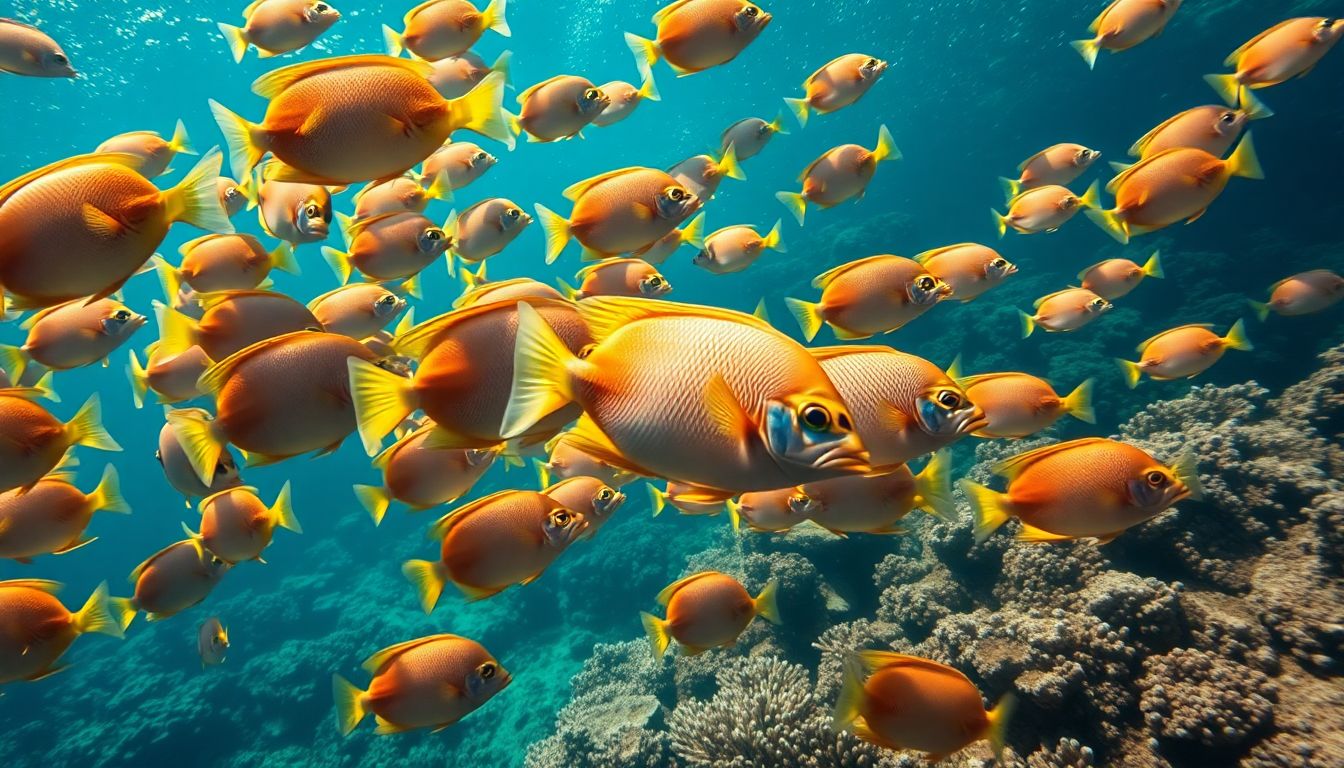
Ever heard the one about fish having a three-second memory? It's a common joke, but it's far from the truth. Scientists are finding out that fish are way smarter than we ever thought.
Fish possess cognitive abilities that often go unrecognized. Let's dive in and explore their surprising intelligence.
Complex Social Lives of Fish
Fish aren't just swimming around aimlessly. They interact with each other in complex ways within their groups. These interactions show a surprising level of social intelligence. The life of a fish is not as simple as you may think.
Fish Communication: More Than Just Bubbles
Fish talk to each other, but not like we do. They use visual signals, sounds, and even chemicals to send messages. Think of it as their own underwater language. Some fish, like electric eels, use electrical signals to communicate. These sophisticated methods help them coordinate and survive.
Recognizing Faces: The Power of Social Recognition
Believe it or not, some fish can recognize faces. Studies have shown that they can remember individual faces. This includes faces of other fish, and even humans. Imagine a fish remembering your face. That's a sign of real intelligence at play.
Cooperation and Hierarchy in Fish Societies
Fish cooperate and form social hierarchies. Some work together to find food. Others have a clear social ranking within their group. Cleaner wrasses, for instance, cooperate with larger fish by removing parasites. This shows a complex understanding of social dynamics.
Navigation and Problem-Solving Prowess
Fish aren't just social; they're also pretty good at navigation and solving problems. They find their way through tricky environments. Fish also solve puzzles to get what they want. How smart is that?
Mastering Mazes: Fish Intelligence in Action
Scientists have put fish in mazes, and guess what? They can often find their way out. These experiments prove that fish have problem-solving skills. Give them a challenge, and they might just surprise you. It shows some great fish intelligence when they do this.
Spatial Memory: Remembering the Lay of the Land (or Sea)
Fish use spatial memory to remember important locations. They remember where to find food, shelter, and migration routes. This ability is crucial for their survival. Imagine remembering all the best spots in a vast ocean. Not an easy task, but fish manage it.
Tool Use: The Surprising Innovators of the Aquatic World
Some fish even use tools to achieve their goals. This is a sign of advanced intelligence. For example, some wrasse fish use rocks to crack open sea urchins. This kind of tool use is rare but shows what fish are capable of.
Emotional Capacity and Pain Perception
Do fish have emotions? Can they feel pain? This is a hot topic among scientists. The answer might surprise you.
Evidence for Fish Emotions: Stress, Fear, and Joy?
There's growing evidence that fish experience emotions. They show signs of stress and fear. Perhaps they even feel joy. For example, studies show that fish release stress hormones when threatened. This suggests they experience fear in some form.
Pain Perception in Fish: A Controversial Topic
Do fish feel pain? It's a tough question. Some scientists say they have pain receptors and respond to painful stimuli. Others are not so sure. What we do know is that fish react to injury. The debate continues, but it's important to consider their potential to feel pain.
The Ecological Importance of Fish Intelligence
Fish intelligence plays a big role in their survival. It also impacts the health of entire ecosystems. Smarter fish are better at adapting and thriving. That's important for everyone, including us.
Adapting to Changing Environments
Fish intelligence helps them adapt to changing conditions. This includes pollution and habitat loss. Fish that can learn and adapt are more likely to survive. This adaptability is more important than ever.
The Role of Intelligence in Predation and Survival
Intelligence helps fish find food and avoid predators. It also helps them reproduce successfully. Smarter fish have a better chance of passing on their genes. Being clever is a great advantage in the fish world.
Changing Our Perspective: Towards Greater Respect for Fish
It's time to change how we view and treat fish. They're not as simple as we once thought. Recognizing their intelligence is a start. It can also inform how we approach fishing and aquaculture.
Ethical Considerations: Fishing and Aquaculture
How should we treat fish in fishing and aquaculture? Their intelligence raises ethical questions. Do we need to rethink our practices to minimize their suffering? It's a question worth asking.
Conservation Efforts: Protecting Intelligent Creatures
We should factor in fish intelligence when working to conserve them. Protecting their habitats and reducing stress during fishing are important. Every effort counts to protect these clever creatures.
Conclusion
Fish are way smarter than many people realize. They have complex social lives. They are great at navigation and problem-solving. It also appears that they have emotional capacity. We need to recognize their intelligence. It is also important to respect them more. Learn more about fish. Support conservation efforts. Let's give these intelligent creatures the respect they deserve.

.webp)












0 Comments